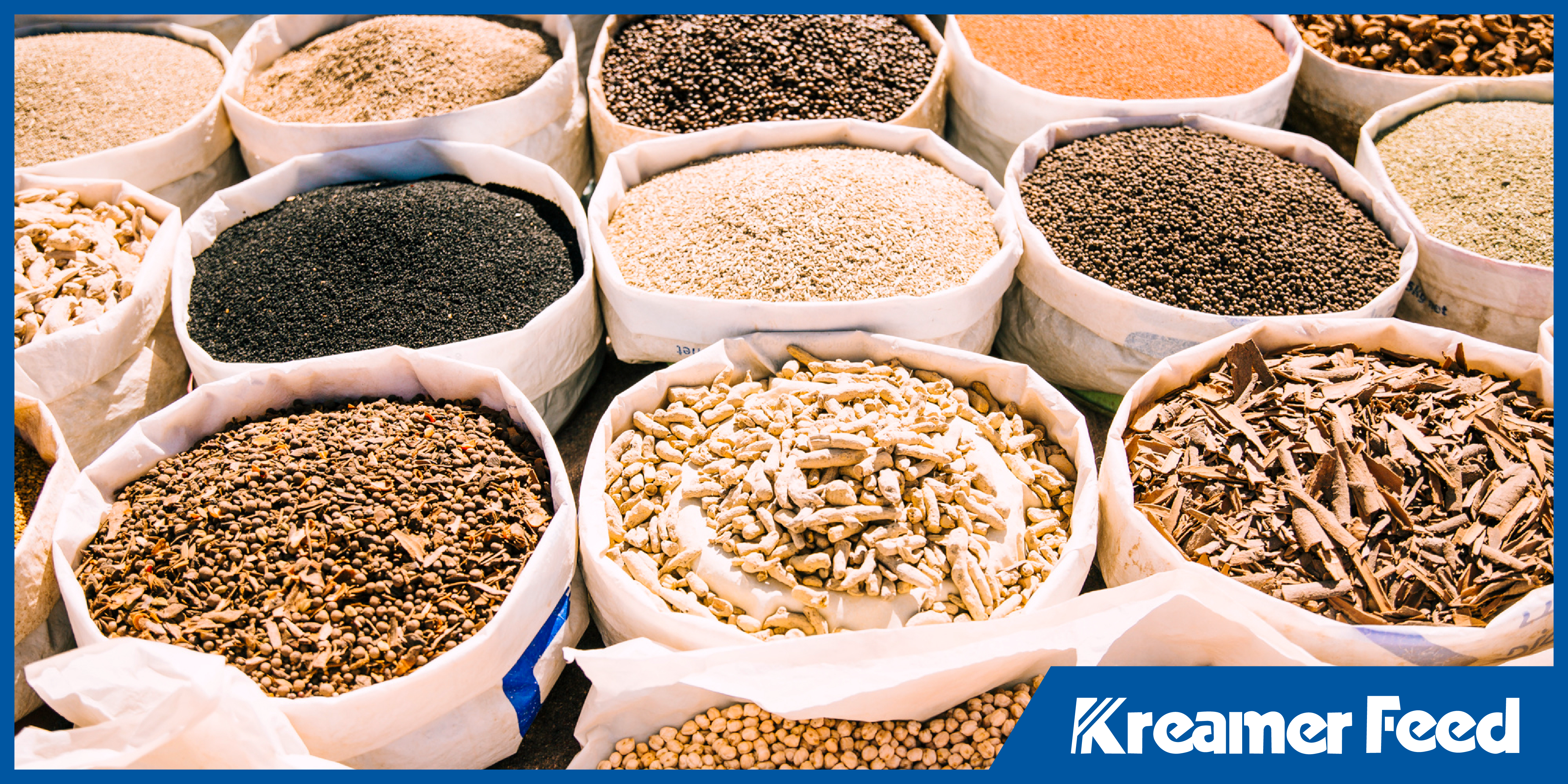
When it comes to livestock nutrition, protein and fat often steal the spotlight. But carbohydrates, often overlooked, are actually the primary energy source in most livestock feed rations. They provide the fuel animals need for daily functions, growth, reproduction, and overall well-being.
Understanding the role of carbohydrates in livestock feed is key to improving feed efficiency, supporting animal health, and maximizing farm productivity.
Why Carbohydrates Matter in Livestock Diets
Carbohydrates are organic compounds made up of carbon, hydrogen, and oxygen. In livestock nutrition, they serve as a major component of the diet, delivering energy from carbohydrates in feed that powers everything from muscle movement to milk production. Without enough carbohydrates, animals may begin to break down muscle or fat to meet their energy needs, which can negatively impact their health and performance.
Carbohydrates are also critical for maintaining gut health in ruminants like cattle, sheep, and goats. In these animals, carbohydrates ferment in the rumen, producing volatile fatty acids (VFAs) that supply a large portion of their daily energy.
Types of Carbohydrates in Animal Nutrition
There are two main categories of carbohydrates found in livestock feed:
1. Simple Carbohydrates
Simple sugars and starches break down quickly and release energy rapidly. These are often found in grains such as corn, barley, and wheat. While effective for providing a quick energy boost, diets too rich in simple carbohydrates can lead to digestive disorders, particularly in ruminants.
2. Complex Carbohydrates
Also known as structural carbohydrates, these include cellulose, hemicellulose, and lignin. Found in forages like hay, silage, and pasture grasses, these complex carbohydrates in animal nutrition digest more slowly, providing a steady, long-term energy supply. They also promote healthy digestion and reduce the risk of metabolic issues.
For monogastric animals (like pigs and poultry), digestible carbohydrates like starches and some fibers are essential, while indigestible fibers may reduce overall feed efficiency if not carefully balanced.
How Carbohydrates Are Digested
Carbohydrate digestion in livestock varies by species:
- Ruminants rely on microbial fermentation in the rumen to break down fibrous carbohydrates. The microbes convert these fibers into VFAs (acetate, propionate, and butyrate), which the animal uses as energy. Proper carbohydrate levels help maintain a healthy rumen environment and maximize nutrient absorption.
- Monogastrics (such as pigs and poultry) digest carbohydrates enzymatically in the stomach and small intestine. Their diets must include readily digestible carbohydrates to ensure optimal growth and productivity.
In both cases, poor digestion or imbalanced feed can lead to issues like bloating, acidosis, or reduced weight gain.
Carbohydrates in Feed Formulation
Creating a balanced feed ration requires a clear understanding of how carbohydrates contribute to the total energy profile. In feed formulation, carbohydrates often make up 50 to 75 percent of the total feed weight. The ratio between fiber and starch must be adjusted based on the animal’s species, age, production stage, and purpose.
For example:
- High-producing dairy cows require more digestible carbohydrates for milk energy.
- Broilers and growing pigs need energy-dense diets to support rapid growth.
- Breeding stock benefit from a mix of slow- and fast-release carbohydrates to maintain fertility and body condition.
Ignoring carbohydrate quality and quantity can reduce feed efficiency and waste valuable nutrition.
Supporting Animal Health with Smart Energy Choices
The role of carbs in animal health goes beyond just energy. A balanced carbohydrate profile can reduce stress, improve immune function, and support reproductive success. In ruminants, it also helps maintain a stable rumen pH, which is essential for proper microbial activity and digestion.
By choosing the right mix of carbohydrates, farmers can better support animal growth, productivity, and overall farm performance.
Fueling Performance with Smart Carbohydrate Nutrition
Carbohydrates are the fuel behind every productive farm animal. From forages to grains, the quality and type of carbohydrates in your feed play a crucial role in animal health, digestion, and output. Understanding how to balance simple and complex carbohydrates according to species and life stage is essential to successful livestock management.
At Kreamer Feed, we understand the science of energy. Since 1947, we’ve been formulating balanced, species-specific feeds that deliver the optimal mix of carbohydrates, protein, and essential nutrients your animals need to thrive. Explore our organic and conventional feed options to keep your herd or flock energized, bite after bite.